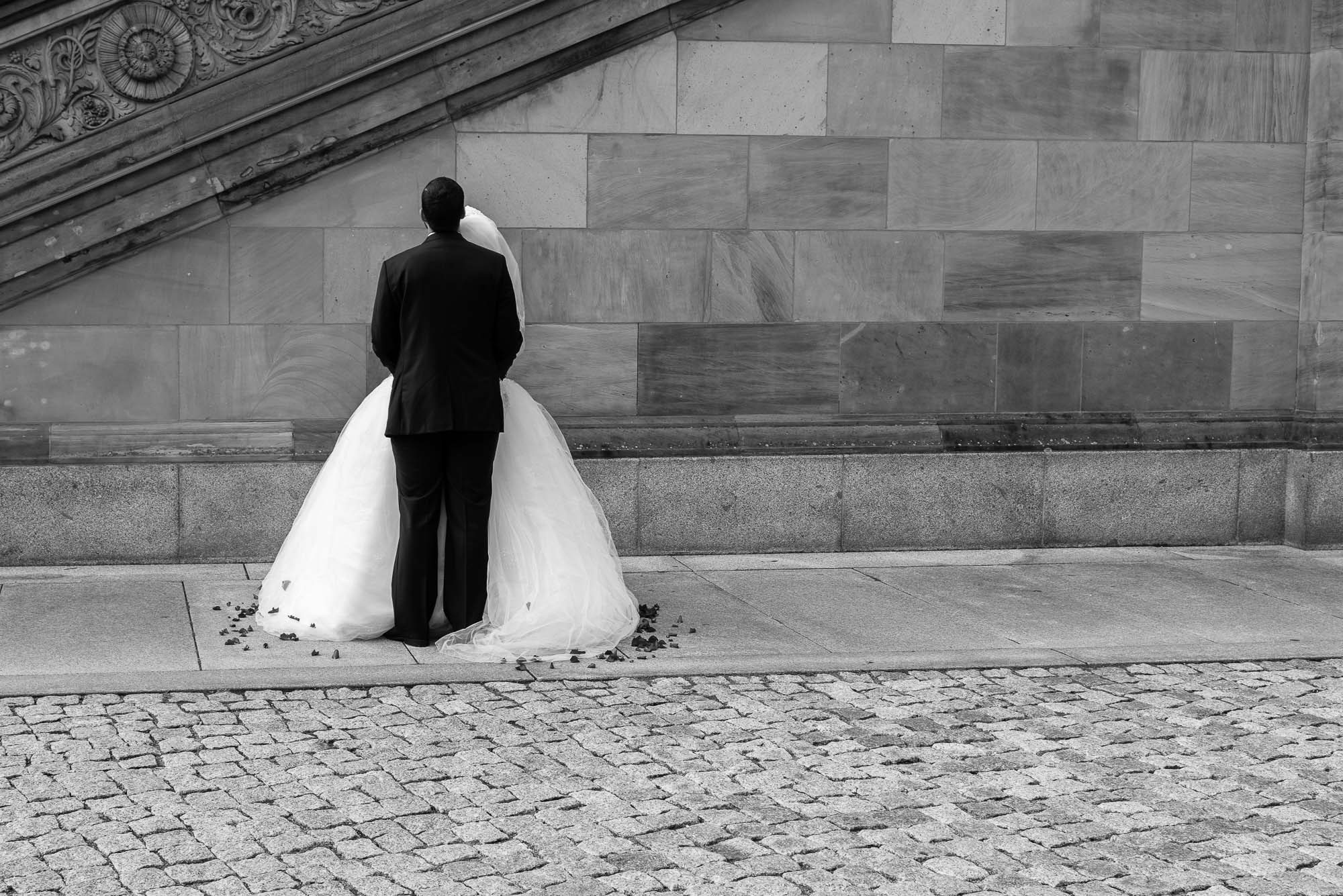Thank you. I do understand German.Really now ...
Google "Recht am eigenen Bild" if you understand German. If not I surely won't translate it for you. If you can't Google, then here is one passage you would find (there would be thousands like that):
Recht am eigenen Bild – das steht im Gesetz
Jeder darf selbst bestimmen, ob er fotografiert oder gefilmt werden will und ob und wo die Aufnahmen veröffentlicht werden dürfen. So folgt es aus dem allgemeinen Persönlichkeitsrecht, wie es [COLOR=var(--color-petrol-dark)]Artikel 2 Absatz 1 des GrundgesetzesArt 2 GG - Einzelnorm garantiert. Schon fürs bloße Knipsen gilt: Sie dürfen nur Menschen fotografieren oder filmen, die damit auch einverstanden sind. Wer Foto- oder Filmaufnahmen von Personen ohne deren Einverständnis veröffentlicht, dem droht sogar eine Strafe. So steht es ausdrücklich in Paragraf 22 und 32 des [COLOR=var(--color-petrol-dark)]Kunsturhebergesetzes[/COLOR]. Bis zu ein Jahr Freiheitsstrafe verhängen die Gerichte bei Verstößen.[/COLOR]
Put that in Google translate, it comes out nicely in English.
It has nothing to do with drone laws, but with basic people's rights. If you do it commercially, then there is also the issue of DSVGO - which is about what information you are allowed to store about people, including images of said people.
What you have quoted appears to be German common law.
However, apparently the German Supreme Court has decided otherwise.
Street photography is legal in Germany. Street photography is considered an art form, and creating art is within your constitutional rights. No permission is needed to photograph individuals in public. It is only the publishing of such images that may require permission under certain circumstances, if the subject is recognizable, and the subject objects. Even then, the courts may decide that your constitutional right to create art outweighs their right to their own image! See below.

Doing Street Photography in Berlin
Berlin is a wonderful city for street photography. Before getting into the street photography part let me give some background information about Berlin. Berlin is the capital of Germany and as such a big city with 3.5 million inhabitants. More importantly Berlin is a vast city, New York has more...
fujilove.com
But isn’t street photography “verboten” in Germany?
"Is street photography allowed in Germany? That is the question I get asked a lot by visitors from abroad. The short answer is “YES”. Street photography is allowed in Germany. And there is a very active street photography scene in Germany. Recently the German Supreme Court ruled that street photography is to be considered as an art form – and creating art is within your constitutional rights. Things get a bit more complicated when you want to publish your image. If your subject is recognizable, this person has a right to its own image and may object to publication. In that case it would be for the courts to decide which right ranks higher in that particular case."=======
This citation is corroborated by thousands of others, by merely googling, "Is street photography legal in Germany?"
Here is another:

Photography laws in Germany
If you take or share photos of other people in Germany, you need to follow certain rules.










